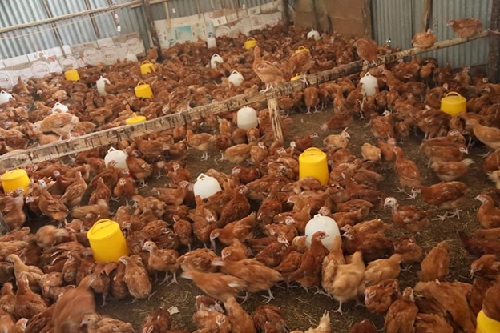
BY MENEGESTEAB TESHOME
It is clear in times when peace is threatened, performing even daily routine activities in similar fashion as before is improbable.
It is undeniable fact that over the past one year, Ethiopia has been in more pressing moments. Following the provocative acts of the TPLF group in some parts of the Amhara and Afar states, many people were killed, tortured and displaced. Private and public properties had also been horribly looted and the towns were left in ruins. Of these hard hit areas, Ataye Town and the surrounding zones are the one.
Meseret Demelash is a resident of Efrata Gidim Woreda, Ataye Town. She clearly remembers how the conflict affected her life; and led her own and friends private business, ‘Meseret, Seada and friends’ Poultry Enterprise, shut off. As to her, business activities that were carried out in the town came to an end because most of the firms were vandalized by the insurgents of the faction.
Luckily, after the war ended up and relative peace is sustained in the area, residents of the towns have returned to normal life; engaging in various businesses.
“I was engaging in poultry farming since 2017. However following the conflict, I ceased the activity. We were forced to quit the business. However, currently thanks to the rehabilitation efforts from the public and development partners like the USAID and their financial support, we have recommenced our operation,” she said happily.
The USAID delivered for the youth day old nine hundred pullets, six hundred pullets of 45 days as well as chicken forage. It has also offered two million Birr to enable the youths achieve great results and turn the effort into a reality.
According to her, now they are working with high levels of team spirit and commitment; and vowed to work hard in their farming and change the lives of their own selves and family lives.
“We aspire to keep our poultry business run smoothly, penetrate into the market, and become one of the reliable suppliers of egg, and meat to the market. Though we face a number of challenges, we keep on efforts to assure a successful business. Hopefully, we would succeed in it.”
She also calls on the youths to distance themselves from worthless and unproductive activities; but spend their time in more active and profitable works that would benefit them.
Efrata Gidim Woreda Animal Resource and Forage Development Expert with Woreda’s Agriculture Bureau, Mohammad Ali on his part said that poultry farming is an input-intensive business, and there are multiple stages of production that can affect performance through different market channels.
“We delivered sustained support and training to the poultry farming owners that could equip them with the necessary knowledge and skills including how they can feed the pullets and keep them clean. In my view, the support can impact positively and help farm owners in terms of ensuring productive poultry farming.”
Efrata Gidim Woreda Animal Resource Development Office Head Ejigu Minkefe noted that efforts are underway to benefit the community who are engaged in various activities in the area. He also urged the community to sustain efforts in developing a high commitment of working culture.
The youth should be well informed and ready to be active and get involved in the already created job opportunities. The poultry farm is one of the productive sectors which the Bureau is recommending. It is clear that chicken rearing is the most common trend and widespread activity of the people, especially among the rural community. Almost every rural family owns chickens, which provide a high quality food and valuable protein, egg and meat, aside from their economic importance.
He further noted that most poultry in Ethiopia is managed by women in smallholder farms, and is often a rural woman’s dominant source of income. Poultry production though small in scale at the farm level, it plausibly is quite important for the rural economy. Rural poultry production contributed to 98.5 and 99.2 percent of the national egg and poultry meat production, respectively, with an annual output of 72,300 metric tons of meat and 78,000 metric tons of eggs. Village poultry are important providers of eggs and meat.
The Ethiopian Herald June 4/2022





